
- AOLF Important News
Debating a Stateless Society: Panel Discussion Moderated by Ryan Cristian
- By webmaster
Featured

Categories
- “Government” 5th Edition
- AOLF Important News
- Censorship
- Controlled Opposition Watch
- Controlled Perception
- COVID
- Covid Investigation
- Economics
- Eugenics Investigation
- Events
- Evidence of “Gov’t” Criminality
- Fact Check
- False Flag Attacks
- Five Meme Friday
- Free State Project
- Government Criminality
- Government Indoctrination
- Interviews
- Investigations
- Liberty on the Rocks
- Monopolization
- News
- Press Release
- Publications
- Speeches and Talks
- Truth Music
- Updates
- Voluntaryism
- White Rose Mucho Grande
- Uncategorized
Our purpose:
The Art of Liberty Foundation (AoLF) focuses on exposing the integrated, criminal control of government and media while providing rational and moral alternatives via voluntary interaction through free markets, decentralized trade, and communication.
Who we are:
A start-up public policy organization: Voluntaryist crime fighters exposing inter-generational organized crime’s control of the “government,” media and academia. The foundation is the publisher of “Government” – The Biggest Scam in History… Exposed! , and its companion media: The Liberator– our expose of “government” illegitimacy and criminality, ArtOfLiberty.Substack.com – our original writings and research, The Daily News – a curated feed of the best of the alternative media, censored truth videos, and more on Substack and Telegram, Five Meme Friday – a lower volume weekly summary of the Daily News and at least five fresh, hot, dank liberty memes on Substack and Telegram, and “Government,” Media, and Academia Exposed! – A Telegram summary of the best mainstream and alternative news stories proving our thesis that all three are being hierarchically controlled by inter-generational organized crime interests.
AOLF Important News
The Daily News
 The Daily News from the Art of Liberty Foundation
The Daily News from the Art of Liberty Foundation
- DOJ Reveals Potential Epstein Co-Conspirators. Internet Reveals Other Epsten Email Authors. February 11, 2026
- Is Brain Rot Real? Researchers Warn of Emerging Risks Tied to Short-Form Video February 11, 2026
- Unfit People Face 775% Higher Risk Of Blowing Their Top From Stressful Moments February 11, 2026
- How Men Choose Women February 11, 2026
- Trump cabinet member ensnared in Epstein scandal February 11, 2026
- FiveMemeFri-The Great Taking - You Don't Own Your Stocks The Way You Think You Do! February 11, 2026
Ryan Cristian Moderates Larken Rose, Derrick Broze, Etienne de la Boetie2, and David Friedman at Liberty on the Rocks – Sedona – The Voluntaryism Conference
Liberty on the Rocks – Sedona – The Voluntaryism Conference is an annual conference hosted by the Art of Liberty Foundation in Sedona, Arizona, the City of Light. The 2024 conference brought together world-class legal theorists, economists, authors, and investigative journalists to discuss how the free market could provide all the legitimate, non-redistributive services provided by monopoly “government” without the waste, fraud, abuse and extortion.
In this panel discussion moderated by Ryan Cristian from The Last American Vagabond, Larken Rose, Derrick Broze, David Friedman, and Etienne de la Boetie2 kick around the hard questions of voluntaryism: intellectual property, immigration and national defense in a world without “government.” Larken Rose and David Friedman get into a mini-debate that alone is worth the price of admission! Check out the rest of the sessions at Sedona.ArtOfLiberty.org
Thought leaders in voluntarism, anarcho-capitalism, and free-market theory come together to tackle complex issues surrounding a stateless society. The discussion opens with how to shift from a state-dominated mindset to a voluntary society, exploring communication strategies that emphasize personal moral alignment and autonomy. Panelists address concerns around security, national defense, and immigration in a world without centralized authority, providing diverse viewpoints on localized self-defense, community organization, and private security as viable alternatives.
The conversation involves practical challenges like due process, voting, and intellectual property. By debating scenarios from non-aggression to intellectual rights without government enforcement, the panel illustrates the ethical and logistical complexities of stateless solutions. This episode offers a thought-provoking look at how a society might function without coercive structures, with each panelist sharing perspectives on freedom, accountability, and decentralized governance.
Speakers:
Ryan Cristian
Larken Rose
Etienne de la Boetie2
David Friedman
Derrick Broze
transcript:
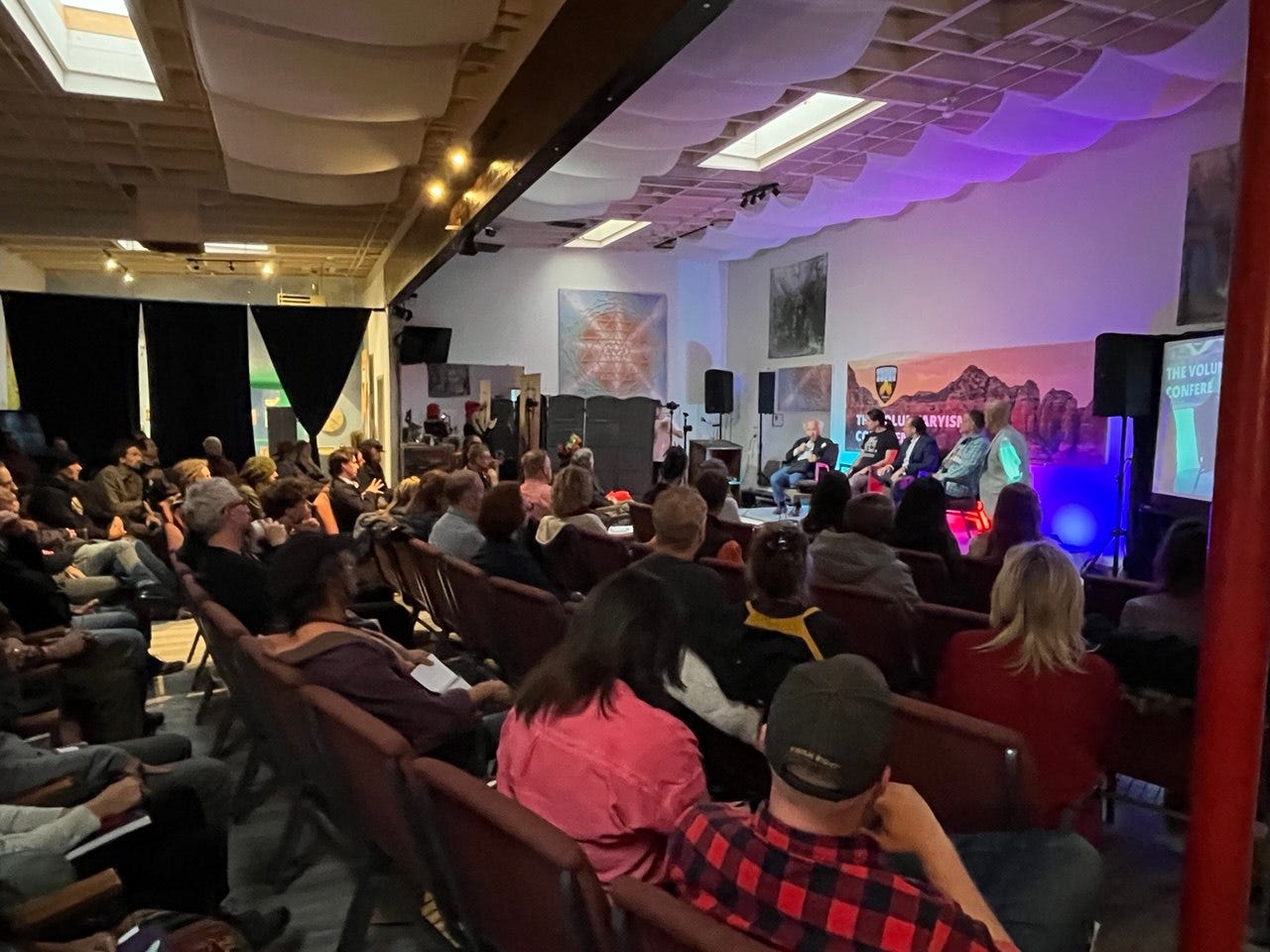
Ryan Cristian
I want to start with something that I think is important in regard to how you move somebody into this before we get into the main ones that we want to talk about, immigration, open borders, and some of these major questions. So my question to start is, how do you move from the statist-minded society that we currently live in to what we want to build?
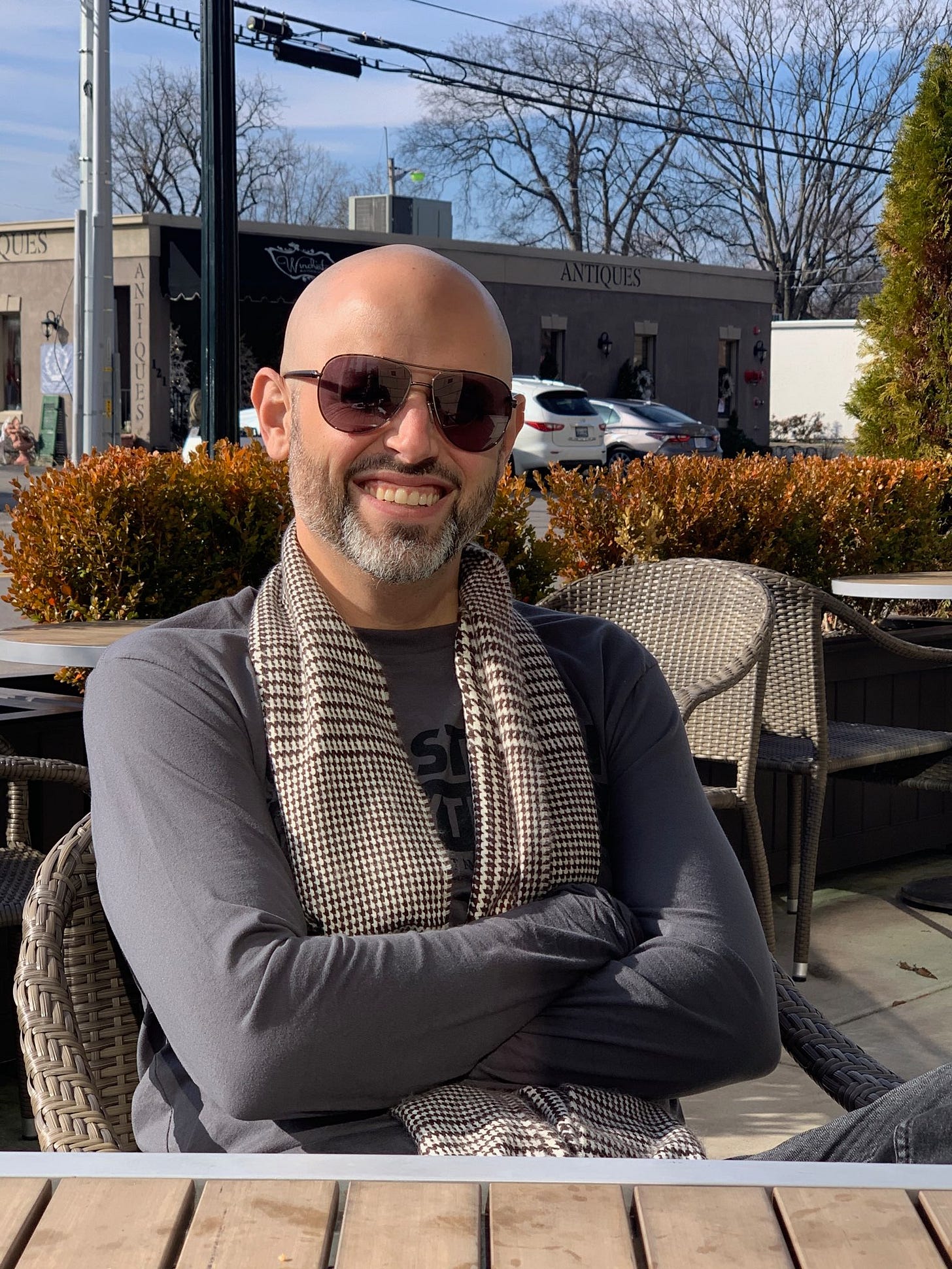
And how do you get past the indoctrination, like the early person? I’ve asked most of you this in these conversations. It’s basically simple, but to get this rolling, the average person that comes into this that goes, “never heard this before I believe this is the right path,” like what is the how do you reach that person and how do?
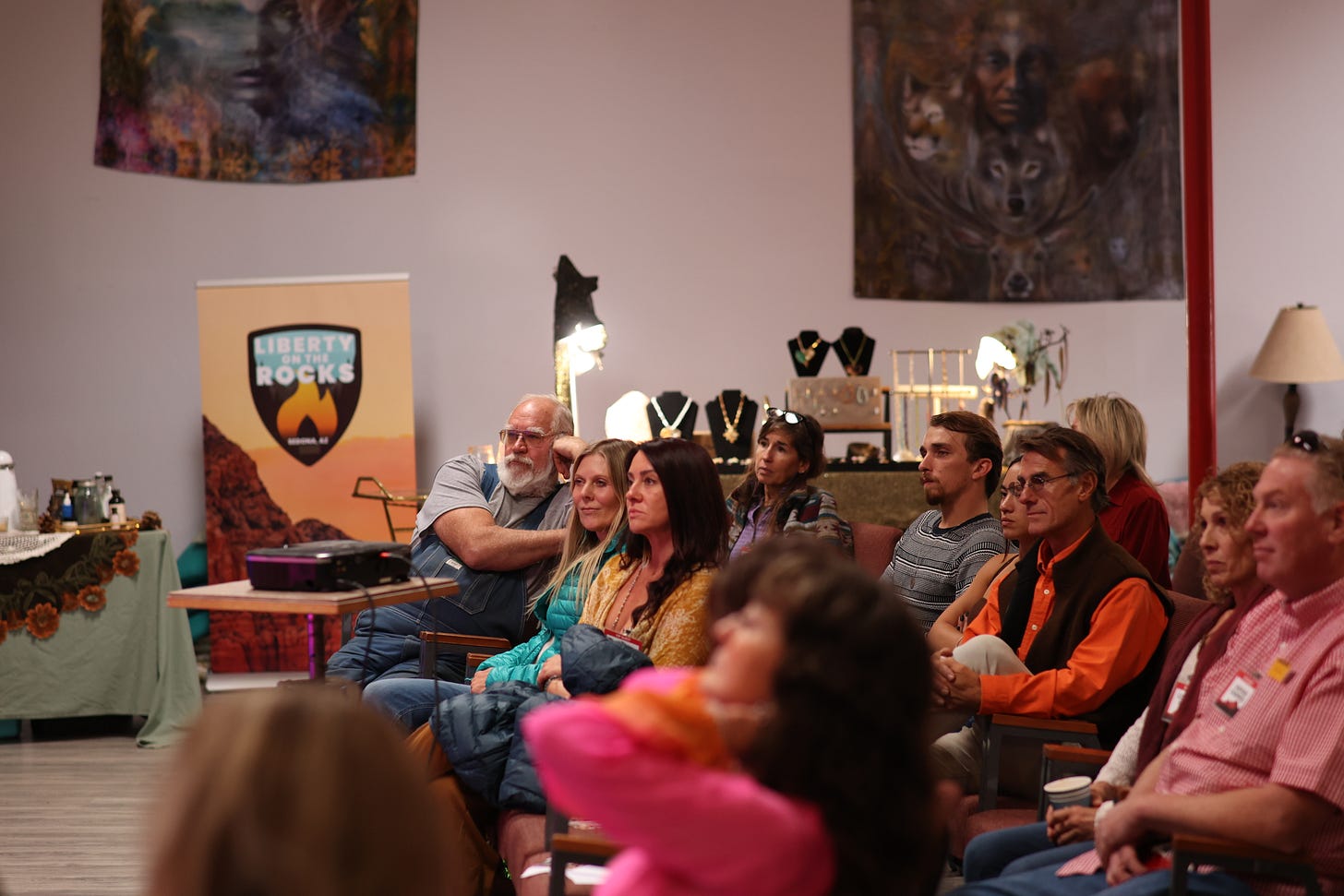
Larken Rose
Since somebody handed me a microphone, I guess I’ll go first. I actually made a thing called Candles in the Dark which is about communicating to people who haven’t thought about these, haven’t heard about these. To me, the key is recognizing that everybody already is a voluntarist, unless you’re a full-fledged psychopath. They’re already voluntarists, and then they’ve been taught some stuff about political authority and power and government and law and all that gobbledygook.
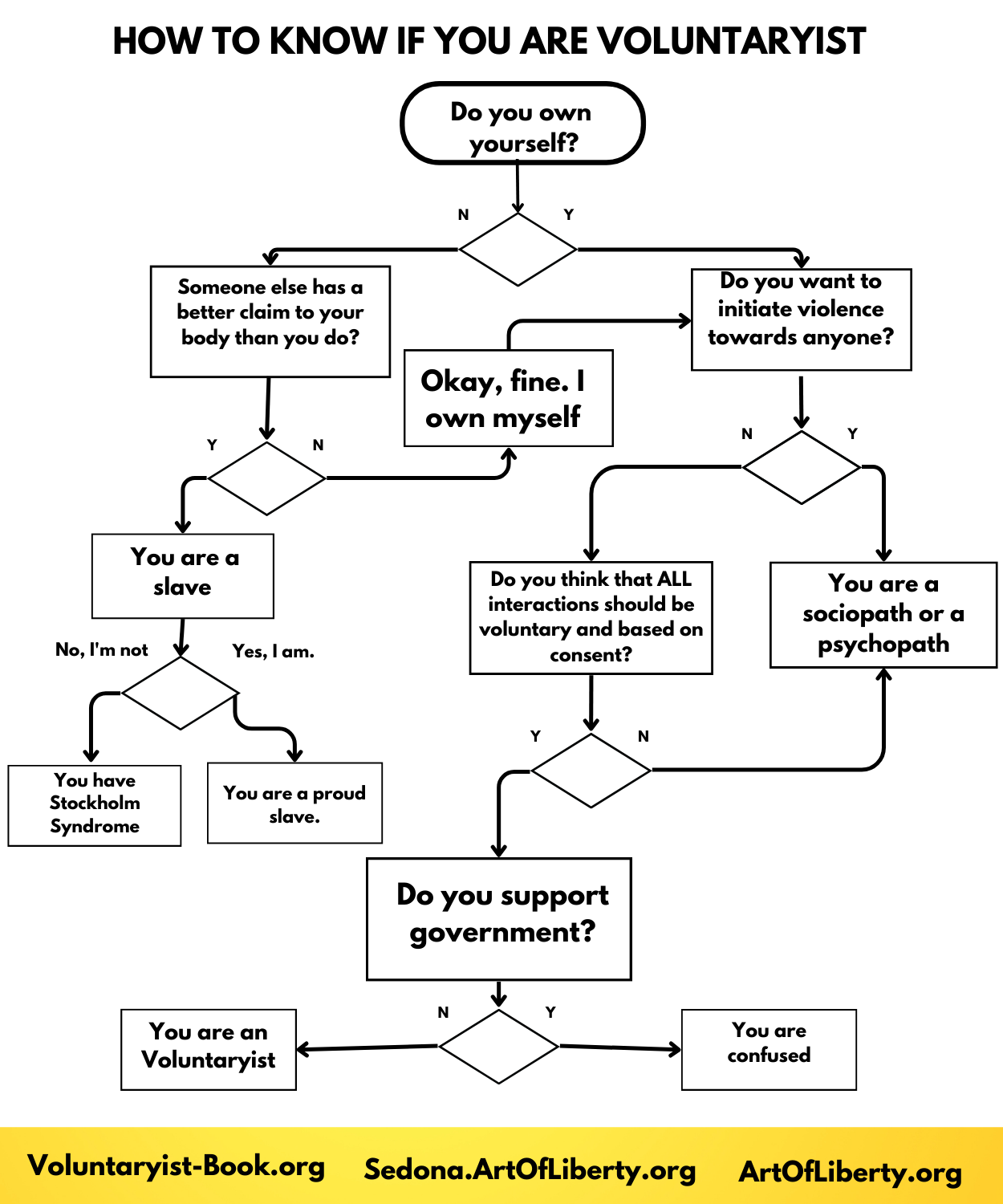
And if they feel like you’re coming to them to tell them how wrong and crappy their worldview is and their philosophy is, they feel attacked, they get defensive, they run away. So my when I’m being nice, sometimes I do less than nice debates with people, but when I’m being nice, I’m looking for the voluntarist that’s already in there. And pretty much everybody I know who’s ended up at this point has said, well, that’s, now I’m in line with myself. Like now my conscience, my moral code actually makes sense and matches my political belief or lack of political beliefs, depending on how you want to put it.
So to me, it’s not about I’m going to change your moral code. I’m going to change your conscience. It’s I’m going to try to do things that get you to see that you are betraying your own conscience and that as long as you believe in government, you have to betray your own conscience. And once you stop doing that, you have to be a voluntarist. And then I’m not going to be in charge of you. You’re going to be in charge of you because I don’t want me to I want your own conscience to run your life. So I have a little bit of a different approach.
Etienne de la Boetie2
You know, my book, “Government”- The Biggest Scam in History… Exposed!, the first part of the book is what I call the playbook. And in the original Etienne de la Boétie, obviously, it’s a pen name. My real name is Howard, in case you haven’t picked that up or haven’t met me before. But the original Etienne de la Boétie, he was a French political philosopher. He wrote in the 16th century, and he was really the first one to expose the tricks and techniques that rulers used not just to get obedience but fealty and adoration.

What I do in the book is I expose how those techniques were run and are being run on the population today. They’re unethically manipulative. It’s taking children and it’s putting them into a mandatory government school and it’s teaching them that government is legitimate, desirable, and necessary, necessary before they’re old enough to really evaluate the logic and the morality of that claim. And then they have this mainstream media system that’s coming along and weaving the flag in and giving the president’s halos and taking pictures of the president in front of, you know, and running game.
Once people realize that the government is trying to trick them and is trying to do these unethically manipulative techniques on them, well, nobody likes to have game run on them. Nobody likes to be chomped. Nobody likes to be fooled. And what I found is that most people, once they really understand what’s going on, they’re out.
And so it’s the kind of way I do it.
David Friedman
I don’t think that persuading people that having a government is immoral is an adequate answer to somebody who believes that without a government, catastrophic results will occur. If the reality of not having a government is that there are robbers and rapists and a foreign government invades you, most people will reasonably enough say, well, it’s too bad that we have to steal some money to support our military, but the alternative is worse. So, I don’t think I find the kinds of arguments that are being suggested very convincing.
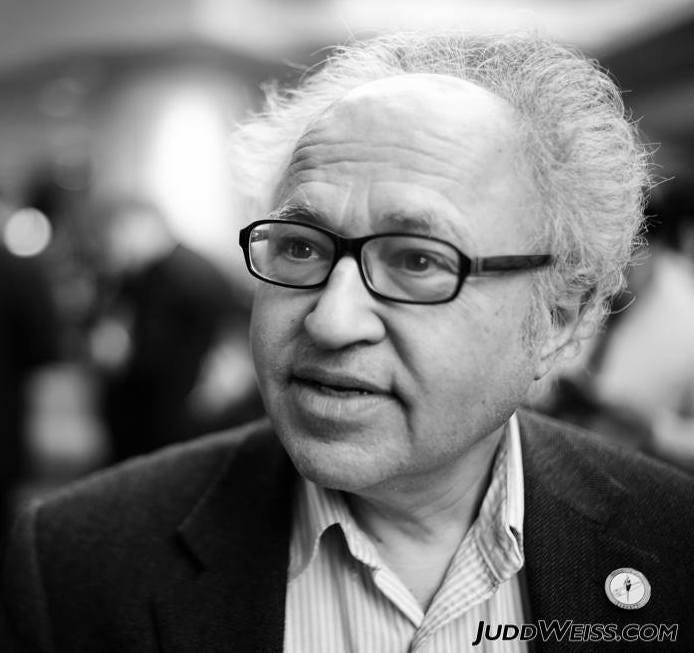
I would have said that there, it seems to me that the way to persuade somebody is to give him reason to believe that one can have a decent society without a government. And that there are basically two ways of doing it. The way in which I try to do it is by arguments largely through economics and through historical examples. And the alternative, if you happen to be a good novelist—I’m a novelist but not a very good one—is to write a fictional portrayal of a functional society which feels internally consistent and believable which doesn’t have a government.
So that what shifted me from the classical liberal to the anarcho-capitalist view was mostly Heinlein’s novel, “The Moon is a Harsh Mistress,” because it was a, his portrayal was of a society very different from mine, and the mechanisms he described probably wouldn’t work in my society. But until that time, I thought it was sort of obvious a priori that the legal framework for a market society had to be provided from outside of the market, and that therefore you had to have a government. And he gave me a single example of what seemed to me a plausible internally consistent portrayal of a society which that was not the case. And a theorem is rebutted by a single counterexample.
So it couldn’t be the case, if I was right in believing that he had given us a plausible account of a society, it couldn’t be the case you always had to have a government, and that made it interesting to me to try to figure out what a society without a government in my society would look like. And I did not conclude that I was certain it would work. I spent two chapters in “Machinery of Freedom,” one in the first edition and one in the third edition, on the problem of national defense. And both of them are saying these are some ways you might be able to solve the problem, but whether you could solve it would depend on lots of features of the situation. I spend, I think, one chapter on reasons why my system would not give the perfect legal system and one chapter on ways in which the system might break down.
So I, unlike a lot of people who give talks at these things, I don’t think that all the arguments on the other side are obvious nonsense. I think that there are legitimate reasons why people believe that you need a government. But I think there are answers to those reasons.
David Friedman
Awesome. So what was the question again? How do we try to convince people? Yeah.
Ryan Cristian
The bottom line is, you know, somebody who is like, exactly like he’s discussing, somebody who’s stated minded, and how do you reach them and make them understand that this is something that’s in their interest or however you want to look at that, exactly like he’s talking about.
Derrick Broze
By calling them sheep, slaves, and that works great. No, I think what David was pointing at is interesting to me because I’m sitting here looking over here at Grant Presence and he makes music that is about a lot of the philosophical concepts that people like David, Larken, and myself and others try to promote. And I think culture is a big part of it, persuading people if that’s like your main thing. I mean, I do think “Candles in the Dark” is an amazing tactic as well and strategy. I think culture does play a role in this.
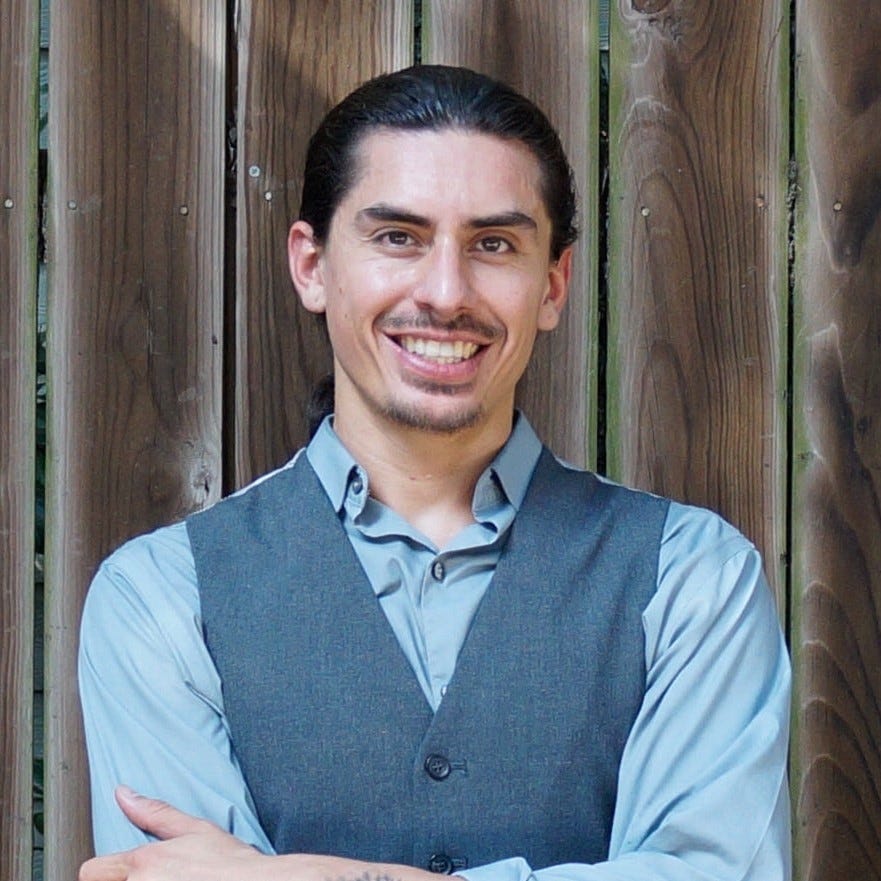
I try to do things like organizing events like we’re doing here, making music, making art. I think those things reach people because not everybody is going to read a philosophical tome and be inspired by it and then see the vision. Like you said, maybe you read a book and that kind of gets you inspired to see that, oh, this world could be possible. I just never thought of it before.
So I think that, yeah, culture, different ideas, music, talking to people, like Larken was saying, sort of appealing to their maybe logical side, talking about morality as well. I guess my main method is to just lead by example. Like I was sharing in my talk earlier, just trying to actually live the principles and then through that be an example. I don’t think that’s the only way, but I do think if you start living the path of liberty and volunteerism and exemplifying the principles of self-ownership, it becomes self-evident and people see it in the way you live your life. And then they’re like, “Wow, want to live more like that? How did you do that? What is it that you’re into? And what are these ideas you’re all about?”
And through that, you take them on a deeper journey.
Ryan Cristian
So the reason I started with that in general, and I would argue, I think, what this kind of showed is that it’s a mix between these. And the idea is that not every one person has one thing that can reach them. So it’s the ideas. Exactly reaching their morality, but at the same time, finding something that’s plausible, something they can understand that makes sense to them. As even David and I discussed earlier, not in a negative way, but like a profit motive for somebody who might be willing to take these positive changes that they saw in their interest, as much as that may not align with our view, it’s about the change.
And so the idea in that is finding ways to reach everybody. And so actually, we’ll start with a harder one around the idea of security. And I’ll start with you, David. Talked about it earlier, and the idea being whether we’re talking about immigration, open borders, whatever we’re discussing in that context, or even national defense, how does that work in an idea where you no longer have a centralized government to step in and save the day? What would be the solution to that problem?
David Friedman
I don’t think immigration is a problem. Immigration is a problem for our society because we have a welfare state. And if you have a welfare state, you have to worry about whether the immigrants are coming in to produce or to live off someone else’s taxes. Since a stateless society is not going to be a welfare state, it seems to me that the simple solution is you have no immigration restrictions at all.
Unfortunately, national defense is a much harder problem. National defense is what economists call a public good problem. A public good does not mean a good produced by the government. Governments produce lots of private goods and lots of public goods are produced privately. A public good is a good where the producer cannot control who gets it and therefore can’t charge for it. And national defense is a pretty clear example. There is no way of saying, “I will stop the invasion that’s going to hit your house, but not the invasion that’s going to hit my house or the missile that’s going to blow up you and not blow up me.” And therefore, you depend on a variety of imperfect ways of producing the public good.
I spend a chapter in the first edition and a chapter in the third edition on trying to sketch what some of them might be. And, you know, I could talk about that, but it would take a while. But I don’t think there’s any guarantee. I think if I were in Estonia, I probably would not be an anarchist for Estonia, because Estonia happens to have a very large neighbor, which is very aggressive. And therefore, even though Estonia, I believe has made training for guerrilla warfare into a sport, which they do for the fun of it, I still suspect that without a government, even with a government, they’re going to have their time. But without a government, they aren’t going to be able to make alliances. They aren’t going to be able to arrange to have NATO troops stationed on their territory and so forth and so on.
So now maybe I’m wrong. Maybe Estonia could do it. I mean, that’s their theory is that they can basically make it too expensive to conquer them to be worth doing, and maybe they could. But anyway, I don’t think there is a clean answer to that. I think there’s a pretty good answer to a lot of the externality climate kind of problems. And the basic answer to that is, yes, you will get imperfect results without a government, but you also get results with the government. And there are reasons, that is the argument I routinely make, is that market failure is the exception on the private market and it’s the rule on the political market. That market failure, which is the basic externality kind of problem, occurs because somebody is taking an action where he does not bear the costs or receive the benefits. And therefore, his private incentives are different than the incentives for all of us together. And that occasionally occurs on the private market, if your smokestack is putting out some of that unpleasant stuff that other people are breathing. But it’s almost always true on the public market, because almost all decisions government makes, the person making the decision is not bearing the cost of it, or often not getting the benefit. And therefore, unless you’re very lucky, he’s not going to be making the right decision. And I think that’s the right general argument about market failure. But in the case of national defense, if that market, if that public good can’t be produced, you don’t have an anarchist society anymore.
Derrick Broze
“What was the question? So yeah, I think that, for one, what David said there at the end is important, that there is no perfect answer, just like all these things. I love the philosophizing and theorizing about this and what the world could look like and how we can provide these services, but I think that always needs to be a caveat, is that none of us will know until that time arrives and we see it play out in reality. Having some thoughts and thought experiments is useful to maybe give us something to work from, or like you said, examples in books and stuff like that.
I tend to lean more towards what it would actually look like with defense and how communities would defend themselves. I don’t inherently think in a stateless society we’re going to have nations the size that they are at this point. So things would probably become more decentralized, I think, in terms of states already wanting to secede. So maybe some areas break down to the state level. Texas reverts to a country again and has their own different things like that. Places with resources will become maybe more able to defend themselves. Other places might become even more decentralized down to the neighborhood level.
And living in Mexico, where Miriam and I do, I mean, there’s a number of examples of communities out there. Because they are a developing nation with a government, but a fractured government that doesn’t have control over the entire territory. And so there are parts of the country where there are criminal gangs that might start to do different things, right? But that also means that certain communities and people have to step up and defend themselves. And we’ve seen that where communities spontaneously organize in the face of corrupt cops, cartel members, and loggers, overthrow them, kick them out of their towns, reclaim it, and become recognized by the federal government as autonomous regions. And they ban political parties and ban the police and ban the cops. And that doesn’t mean they don’t have ways to defend themselves. It’s just not being funded by the state government or the federal government.
I think things like that will happen as well, that things will be, there will be this spontaneous order in a moment of, you know, because anarchy, the way I really see it, I guess it’s a moment in time. Yes, it’s a political philosophy of no masters, no slaves, this sort of thing, but also like living it, that’s where it really exists. Moment when we’re interacting and there’s voluntary relationships, so there’s nobody forcing, holding a gun to anybody’s head. That’s anarchy. It’s existing right there in that moment. If the government were to collapse, then there presents a moment where we could live in anarchy. There will be other people, of course, who try to seize that power and try to claim power over us. And it’ll be in those moments where those of us who believe in these ideas come together and say, hey, we’re going to come together and organize on our neighborhood, state, whatever level. And maybe people are armed and they form a militia. Or different things like that.
I think that the defense will get down to a much more local level, not necessarily inherently on national level. Now, of course, if this is just one nation and taking this full-on thought experiment, you got other nations existing in the world. Would the UN recognize an independent nation like that? Not typically. There’s, you know, people fighting against the Syrian and Turkish government, Kurdistan. You know, they try to claim their own nation there. They’re not recognized by the UN. They get no help from nobody, but they’re essentially a state. Fighting against governments all around them. And that’s what being free sometimes can come down to. So I’m a little off from the question here, but I think that it wouldn’t necessarily work out one perfect way everywhere. But Rothbard and Konkin and others have talked about private defense firms, people renting, like having insurance companies that basically you hire private firms that protect certain neighborhoods, like private security, but to a new level, and that there would be more accountability. Of course, ideally with those firms, since if the firms aren’t doing their job and aren’t protecting you and your neighborhood, your goods, your people, then you could fire them and select from a new firm that exists in this marketplace of defense. So I think there’ll be a combination of all of the above, and I look forward to seeing what it’s like.”
Etienne de la Boetie2
So I’ve got a little bit of a different take in the sense that I think the way that the state dies is that it becomes incredibly obvious and widespread the illegitimacy and the criminality of government, the fact that they have been running these unethically manipulative techniques on the population, and that government is inherently illegitimate and criminal on its face. And I just don’t think that there’s any way of stopping that in the information age. And so right now, you guys, everybody in this room, everybody that’s listening to the sound of my voice on this on the stream are the vanguard, are the tip of the spear, but that is getting bigger and bigger and bigger because you can’t stop the signal in the information age. You can de-index it, you can de-platform it, you can de-monetize it, you can slow it down, and that’s what’s happening, but it’s a one-way revolution that once you realize that government is illegitimate, that it’s immoral, that it’s running game on you, most people are out. And that one-way revolution, I believe, is only going to accelerate and grow faster and faster until it takes over the world.
Now, I understand that if it came to the point of a popular abandonment of government in the United States, that that would lead, and we couldn’t fund the military, and we couldn’t fund things, that that would leave us vulnerable to other governments that would then, you know, maybe seize the opportunity to step in in a power vacuum in the United States.

So one of the things that I’m trying to do is I’m trying to get my book translated into other languages so that we can take down USSR and China simultaneously and rapidly get that idea out to those populations. And I think if we abandon the idea of government in the United States, you would see it fall in every other country in the world. I think it would spread like wildfire around the world that it’s been illegitimate. It’s been a scam. And I don’t think that there’s any way of stopping that message from getting out. And so I think that accelerating that dynamic in Russia, in China, in other potential adversaries is the strategy to go.
Another cost-effective strategy is something called assassination politics and assassination markets. You don’t have to spend a gazillion dollars on tanks and IBM missiles and everything like that. If there’s somebody, if there’s a leader in another country that’s threatening you, you can spend a tiny fraction and put a giant bounty on his head and let somebody whack him cost-effectively. And you don’t have to do that.
And then the final thing I’d say is that we here in the United States, we’re armed to the teeth. And we’ve got some people that have the ability. There’s a guy right here, Shepard Humphrey, stand up for a second. This gentleman was the team leader for the world record for longest rifle shot: a 4.4 mile shot. And there are a lot of people here in the United States who have the capabilities and the physical courage to stand up and oppose anyone who wants to try and hurt their friends or their neighbors or their families. And as long as we’re armed, I don’t believe that there’s another country in the world that can walk into the United States and take over anything.
Larken Rose
I’m glad you did two of the practical things I was going to mention for me because I want to get to a different thing. Because none of us up here are suggesting a centralized authoritarian solution to the to the threat of, you know, scary invaders, all we can do is sort of make predictions or suggestions or guesses of how people might try it and how it might turn out, because it is uncertain either way, with or without government. But this is why I think the moral thing is so important, because the lifeblood of the state is uncertainty and fear. And everything that they do is about saying, oh, if you don’t give us lots of power and resources and the ability to tax you all, then you’ll be invaded or you’ll die of poverty and you’ll be poor, you’ll get sick or all these horrible things will happen.
And because it is an unknown, like we don’t know exactly what would happen. Now, I have way more faith in an armed populace than I have in any government military anywhere. And I would not want to be in an army invading Arizona. Who here has heard of the big Sandy shoot that they do every year?
Look it up on YouTube. It’s a bunch of private firearm ownerships and they have like anti-aircraft guns and tanks and they just blow up a side of a mountain for a while for fun. If I saw that as a member of an invading army, I would quit very quickly. But the point is if people can be scared into the what ifs to the point where morality doesn’t matter anymore. And they’re like, okay, well then just in case, we better have powerful people robbing us all and having a big centralized solution.
As long as that trick works because they can use fear to squash people’s morality, most people not being sure of the outcome will go, well, then we better just have government do it. And the only people who don’t do that, as far as I can tell, are the people who say, even if the outcome would be bad, I will not advocate that my neighbor be robbed in the name of protecting me from some uncertainty. I will not advocate violent aggression against my neighbor, even if there really is a risk, even if there really might be a worse outcome. Which certainty?
Larken Rose
I wouldn’t rob them. I still wouldn’t. It’s not my right. I would become the thing I’ve been fighting against my entire life and I will not do that. And as it happens, what I find really cool about this is we get to basically the same conclusion and I I know a bunch of people who got there from the practical things, from reading stuff like you write that get into detail about human behavior and cause and effect, and a bunch of people who got there from the moral side.
And I think they match perfectly. The reason I think the moral is so important is because if somebody can be scared into saying, well, hell with my neighbors and their freedom and stuff, I’m too scared right now. Ruling classes win because they will always find a way to scare the crap out of people.
I mean, didn’t we just see that in the last few years? And it took the people learning to say, no, we’re not doing this. Even if you’re scared that there really is a thing out there going to kill you, you don’t get to tell me what I have to inject, even if it really was a risk to my life. Even if my life depends upon it, you still don’t get to tell me I can’t leave my home. You can, you can stay away from me in your own home. You don’t get to do that. Even if my life is on the line, it’s still my choice.
And that’s where that’s that. I die. I die.
I will not shoot an innocent person.
I hope that doesn’t happen, but if it does, I die. Unless I have a really good rifle and he peeks his head out a little bit to the side. Yeah, so this is… I have Shepard shoot him. Yeah.
Ryan Cristian
Well, so this really cuts to the quick of the whole point. This is such an important dynamic, and if I may talk about something… First, I wanna say that this, for me, has been a very educational process. I am learning more from this, even though I have ideas that really align with a lot of this, like being here and working with people like Derek and interviewing, it’s changing my opinions just in the days I’ve been here. And so I’ve had talks with both of you about this, about the same conversation.
And one of the points being is that obviously there’s a practical point, right, to where if there is a force, then that has to be practically dealt with, or how do you deal with that? But what you guys brought up before, which you didn’t bring up necessarily here, was like the joke you made before, is that, okay, so an army comes in, you’ve got millions of people, who are armed and simply even just saying, I will not comply. I’m sitting down. But eventually, they’ll start beating people up. And well, eventually, their arms will go tired, is what you said. And I’m like, well, OK. So it’s interesting. And it had an epiphany about that. And the same point is there’s essentially a point at which it does not become feasible or valuable for them to continue to do that if there’s enough people. But obviously, that’s about a hypothetical future point when the whole country is in this mindset, as opposed to that’s why I asked the first question was getting there. But this is the point of why We have to have these conversations because it’s about finding that middle.
David Friedman
Did you want to say something else? Problem which is not the same thing But it’s the same Logical issue because all of this has to do with the fact that I don’t really believe in the NAP I think the NAP is a useful rule of thumb, but it is not a moral Commandment and so Bill’s example is you’re on You have an apartment on the 10th floor of an apartment You fall off the balcony. Fortunately, you catch hold of the flagpole of the ninth floor apartment, and you’re working your way hand over hand into the balcony when the owner of the ninth floor apartment comes out and says, you do not have my permission to use my flagpole. Do you let go? Because it seems to me that on the argument, on the position you’re arguing, you have to say yes, and I don’t believe I wouldn’t.
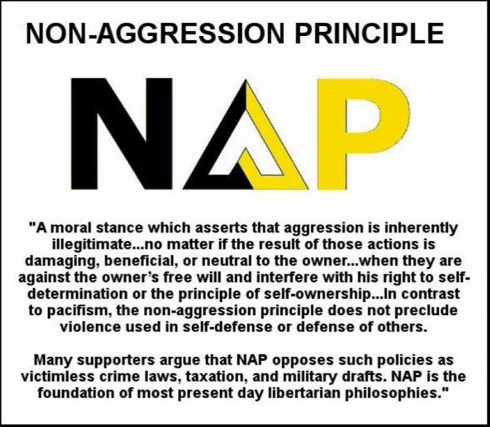
You wouldn’t.
Very good. But you are violating his rights. And you’ve just told me that you’re not willing to violate somebody’s rights, even if it. We are.
Larken Rose
Are we on the flagpole outside? I didn’t quite catch. So I found out he holds his flagpole is sticking out from his balcony.
David Friedman
OK. And you caught hold of it.
Larken Rose
He’s saying, don’t hang on to my. And he.
Right.
David Friedman
He tells you, you cannot. You do not have my permission to use my flagpole. Let go.
Larken Rose
It’s funny that. That’s similar to a thing that I relate to, having wandered in Arizona a lot, which is, you’re in the middle of the desert, you’re dying of thirst, and you find a house, nobody’s there, you break in and drink water so you don’t die. It’s the same sort of trespass scenario.
David Friedman
Well, except that that one’s a little less clear because the owner- Yeah, that’s more immediate and scary.
Larken Rose
This one I’ve got a case where the owner is there and tells you you don’t have permission. Yeah, and I think there are times when the non-aggression principle doesn’t all the way cover. That’s one another one is like shoving somebody out of the road. So yeah, I wouldn’t let go and maybe I would try to bribe him Maybe I would try to do something Because I don’t I think the non-aggression principle is basically an attempt to describe and summarize the concept of Self-ownership like you don’t get to mess with somebody else if I’m accidentally hanging from his flagpole Like I hope he’d be nice Not say get off my flagpole, but I’m not gonna let go voluntarily because the non-aggression principle is sort of a description of the symptom rather than the foundation, which is self-ownership. But I would feel like, sorry, I’m on your flagpole. Like, I didn’t try to do this. And I know I’m trespassing. I’ll try to make it up to you. Same thing as in the desert, I would break into somebody’s- So the human shield, you can say to him, I’m gonna shoot at that guy.
David Friedman
And if I’m lucky, I’ll miss you and get him. And if I’m unlucky, I’ll do my best to make it up to you. Up for you, I’ll agree to support you to pay your hospital bills and I’ll support your kids.
Larken Rose
I mean, if you’re talking about like the the likelihood of me hitting somebody, if it’s a certainty, like the only way to hit him is shoot through that person. I’m not going to do it because to me, hanging from somebody’s flagpole for a few seconds without their permission is rather lower than killing an innocent person. But it’s still a measure of how much Like, how much do I value their freedom? Like my life versus somebody having somebody on their flagpole they don’t want. If I wasn’t even involved, I’d still say, no, the person should hang on because his life matters more than this.
David Friedman
How about how about a certainty of your life if you don’t shoot at the guy who’s shooting at you versus a chance of killing his life if you shoot back? Well, I’m saying if all you’re saying is that you’re willing to take You’re willing to accept it as long as the violation of his rights is smaller than the amount you’ve got at stake. Then I want to take the case where you say, I’m sure that I will die if the guy who’s shooting at me keeps shooting at me and I can’t shoot back. Is this the guy with the innocent person in front of him? Yeah. And if I shoot back at him, there is a risk that I will kill the innocent person, but I might not. I might wound him. To miss him and hit the other guy. So I’m saying it’s a certainty of my life versus maybe a 20% chance of his life. Am I now allowed out to make the trade?
Larken Rose
Yeah, well, then it becomes a judgment thing of how big do I think the risk is. Like in the example of I have to shoot through the innocent person, I’m not doing it. If it’s, well, there’s only 99% chance I’ll kill the innocent person, I’m still not doing it. How about 20%? I don’t know that there’s a number, even 20%, it’s already like, I become the murderer.
David Friedman
It just seems to me you’re trying to make it an absolute kind of thing. And I don’t think that’s the way morality really works.
Larken Rose
Well, it’s not the way it’s not the way practical reality works, because like in that scenario, you don’t know exactly what the outcome is going to be. Even just if somebody is attacking me and I’m shooting them, there may be somebody I don’t know about in the bushes 500 yards behind. So there is there’s always like judgment calls involved because because of the uncertainty. And we don’t know for sure. And so if I’m gonna shoot somebody, I’m pretty dang sure I’m not gonna hit the innocent person or I’m not risking it.
David Friedman
Part of the problem with the NAP is that it’s phrased in terms of absolute certainties. It’s just like part of the problem with the whole abortion argument in this country is that we are taking a continuous process and trying to map it into a binary process.
Larken Rose
Yeah, I’ve complained about exactly, like you can’t just draw a line between. It’s the same thing.
David Friedman
It is much easier to think about if your categories are good and bad. That’s binary categories. And it similarly is much easier to think about killing a living thing if the categories are it is a human being or it’s not a human being. But how about if it’s in the process of becoming a human being? If it’s 1% on the way, if it’s 33% of the way and so forth. So it just seems to me that these are cases where what feels like a satisfactory absolute moral statement will never violate somebody else’s right doesn’t work.
Ryan Cristian
Because- Tiny, tiny, tiny, tiny percentage of cases.
Larken Rose
Yeah, it’s sort of a rare case, but it isn’t because that person, it isn’t because the innocent- Whether it’s a tiny percentage of cases is one of the things people are arguing about, and it depends on how low a
David Friedman
probability. As you just pointed out, if you shoot, if there’s no visible innocent shield, there’s still a chance that you’re going to kill somebody downrange.
Right.
And there are lots of other cases. And, you know, somebody can say, well, look, if you’re not willing to pay your taxes for the police, there’s a chance that that I’ll get murdered by by a criminal. So therefore, it’s right.
Larken Rose
But the example that the underlying thing of self-ownership is still there, like the innocent person there definitely doesn’t deserve to be killed. Like the goal, one of the main goals is have them not die. One of the main goals of me is having me not die too. But that’s only there because of the moral concept. Because if I was just a robot going, well, I’m interested in this thing, and if I have to shoot 57 people I don’t know to get to that one.
David Friedman
But that’s a different moral claim, that other people don’t matter. But there’s a very large difference between saying that other people matter and saying that it is never right to take an action which violates somebody else’s rights. That’s what you’re trying to get to. But, well, I agree.
Larken Rose
I’ve actually done things about the gray area, like shoving somebody out of the road without asking their permission so they don’t get run over by a bus. But it’s still, if you start with the concept that everybody owns himself, then the judgment things of, do I take this shot? Like, how sure am I I’m gonna miss the person, is still taking the shot, like making that judgment based on, I have the right to defend myself from that. I don’t have the right to kill that person. How sure am I that I’m going to do that? And that’s what the judgment has to be based on, which is still the foundation of that is still the concept of self-ownership.
I just want to add something that real quick.
Derrick Broze
So this is one of the things I love. And I think the problem with libertarian theory is that we get so deep in the theory and it is interesting. And people like David and somebody before us, like these thought experience are great. Right. But also sort of like you guys are saying, but it’s it’s like a it’s small percentage.
And the average thing that we’re talking about here is like, is it wrong to rob your neighbor? Then we all get like, we would feel like that’s immoral, that’s wrong, right? But then we can think of really extreme or random or, you know, may never happen incidents and put it in a framing of like, okay, but in this situation, and it is a fun thought experiment, but I think it also gets, it takes it away from the everyday experience of what we’re talking about, that we think it’s wrong to rob, you know, this person to pay for this person or to whatever the case, That’s what I think is really important. And that comes from the self-ownership that you were bringing it back to Larkin.
David Friedman
But if you think seriously about legal systems, it turns out that problems of this general sort are much more common than you want to think they are. Because think about the issue of standard of proof. You have somebody who there is evidence committed a murder. You’d like to jail him.
He might be innocent. So on what principles do you decide, well, what probability? How about if it’s not a murder, if it’s a tort? Maybe his car damaged your car when he didn’t have a right to. How certain do you have to be of it? So it seems to me that putting it in the kind of language that gives you clear yes and no answers. That gives clear yes and no answers tends to obscure how difficult these problems are.
Larken Rose
Yeah, they they totally can be. And actually, I did a short series of videos a while back about the concepts of due process and how they totally make sense. Like there are there from people thinking about it before government took it over and warped it into oblivion is like, all right, do we assume somebody is guilty because somebody said he was? No, because and even the questions of is it more important to protect an innocent person from being punished for something he didn’t do, or is it more important to get the guilty person, even if we stomp on a few innocent people, and the whole concept of due process and the presumption of innocence and the levels of what counts as reliable evidence and all of that. But that’s all sort of the real practical application of let’s try not to violate the self-ownership of anybody. And because we’re not omniscient and we don’t know all the facts and we have to make the decisions in the gray area example, OK, we don’t know if this guy murdered somebody.
And now what do we do? Like if we knew what he did, if we were omniscient, OK, a lot of those problems go away, but we don’t. So then it becomes a factual evidentiary thing. But the whole mentality behind doing any of that is we don’t want to hurt innocent people. It’s the reason of presumption of innocence. And it’s the reason for all the other aspects of due process before government even gets involved but it’s still the foundation of he owns him he owns him I own me going from there let’s do the best we can
David Friedman
as imperfect as it is you have a legal system with imprisonment and lots of cases because it’s the big population you know that you were locking up some innocent people then the reason you’re willing to lock up some innocent people is that if you don’t do that there will be a whole lot of non government rights violations in the form of crimes. So once you see that you’re willing to lock up innocent people in order to prevent those crimes, how do you get a clear answer that you’re not willing to tax innocent people in order to prevent a foreign government from
Larken Rose
invading you? Because taxing somebody is absolutely intentionally robbing somebody who doesn’t deserve it.
David Friedman
And having a criminal system, which is using any standard of proof below 100% is absolutely knowledgeably resulting in innocent people being in prison. You just don’t know which one. Yes.
Larken Rose
The difference is we’re not trying to imprison innocent people and we don’t know when we did or we let them go. When we’re robbing somebody by taxation, we know we’re robbing somebody.
David Friedman
You’re trying to do something that you know will result in imprisoning innocent people.
Larken Rose
Yeah. Because we’re not on mission. All right.
Yeah. Me, too. Me, too.
Ryan Cristian
I only have one. Basically, what just happened here answered a couple of things I was even going to get to. But this is important. And just from my opinion, I think what’s important is there’s very few absolutes in life. And I think what we’re talking about here, like even the analogy was inadvertently that happened versus something else. But I think these are valid points to bring up. So we understand that nothing’s absolute. There will be downsides. But at the end of the day, I would much rather have that small percentage versus the society we live in today.
And that’s my personal perspective. But this is important to do. So thank you, both of you, for engaging in that. So I think the one that I was going to ask next, and then we can go to some audience questions, would be sort of the idea around, let’s just say, voting in general. And I know this would be interesting, because I’d imagine all of you have different perspectives on how that might work. So in a society, again, hypothetically, have reached that point where we live in the society? Is there voting in your society? How does that work? What’s the process like, Is there elections? So give me that thought process and how that works.
Etienne de la Boetie2
So in a voluntary society, you would get to vote every day, which in this society you do too. You’re voting with your dollars and you’re voting with your time and you’re voting with your attention and you’re voting on who you’re going to collaborate with and how you’re going to solve these problems and what charities you’re going to donate to and what organizations you’re going to be be a part of and what school kind of schooling you’re going to put your kids in.
And so, so in a voluntary world, uh, you don’t just get to vote, you know, every two to four years, you get to vote every single day. And your vote really counts because you’re actually getting the outcome that you want.
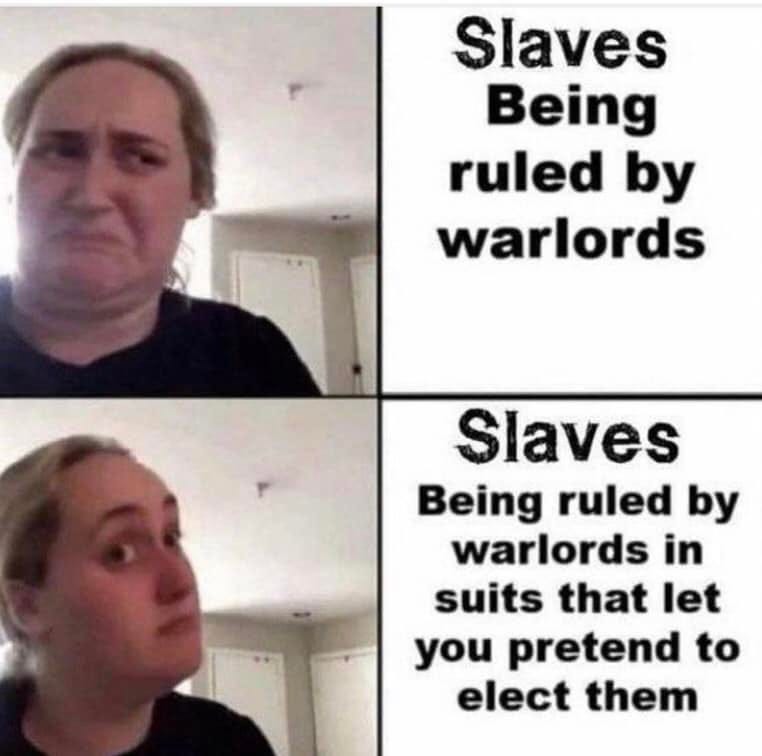
We’re voting in today’s elections is the illusion of influence. It’s the illusion of influence. And instead of, uh, worrying about hypothetical warlords that might take over us, what we have right now are warlords in suits that pretend to let us elect them.
Larken Rose
Want me to go? I’ll be brief.
Amazingly enough, I’ll try to be brief. There are plenty of ways in which voting helps when it isn’t coercive. It isn’t, well, the majority designed this, so the minority is getting stuck. On. Very simple example. Hey, what are we going to have? Well, eight out of ten of us want pizza for dinner and two want Chinese food or whatever else. Do the eight have the right to force the other two to pay for pizza? No. Do the other two have the right to go? Okay, we’ll do pizza.
It just makes it simpler. The consent of every individual in the context of voting can be useful. Like, what do we actually want to do? We want to go for a hike. Do we want to do this trail or that trail? The moment people use voting as a justification for coercion, it’s immoral. That’s democracy. And it’s authoritarian BS. Voting has lots of purposes. Violating the rights of the individual shouldn’t be one of them.
Yeah.
Derrick Broze
So I think, again, that things or we have the opportunity to stateless society and volunteer society for things to get more localized and decentralized. And I’ll use Mexico again as an example, like the areas that I’ve been mentioning that have become recognized as autonomous regions, and that they do still have voting. But as Larkin said, it’s not people voting to control other people. It’s down to literally the neighborhood level. So specifically in Cheran and some other areas of Michoacan, which is where Miriam and I live, there are these towns that have, well, for one, one really interesting thing is they realized that once political parties came to their towns, that they started to get divided and turned against each other.
It’s kind of hard for us to understand this, but there are parts of Mexico where rural areas were really seen as insignificant, so the political parties never even bothered campaigning there. But that changed in the last 40 or 50 years. They started to show up. And some of these communities realized, well, before they came along, we were just neighbors. We were all working together. But now you’re on the other team, and I’m on this team, and so we can’t get along anymore. So as I said, some of them have banned political parties and things like that. And they chose because they did have a foundation to go back I think this is another important part that sometimes people discuss, this sort of idea of having some type of cultural connection. For some people, that could be religious, spiritual connection, et cetera.
There’s a bond that can be formed. And for these people, they all are indigenous to that area. So they already had some form of organization. And what they decided as a community to do was to go back to what their communities were doing before the political parties came around. And what that is, is basically they have their, each little neighborhood would be like couple of blocks and they’ll have a fire here and everybody from that area comes and discusses and then everybody basically sends in their rep to like the main area.
So it’s decentralized. You could call it, you know, small local government, but it’s not being imposed on them by the Mexican federal government or the state government. It’s something that they’ve all consented to and that they chose. They came together as a community and decided we’re going to go back to this is how we’re going to make decisions. Now, still, each neighborhood makes their own decisions for their own areas. But when it’s things that affect their entire city, town, village, they do come together in that way and they have fires burning everywhere and everybody comes and discusses and they’ll kind of send a representative and people, they work things out on their own. So for me, I’m definitely not a voter in the electoral politics. I think Howard said it as well. I think we should, when people come and try to shame you, if you’re a non-voter like myself, remind them that you’re voting every single day with your actions through the relationships and through where you spend your money and the kind of things you’re supporting.
I think that’s way more valuable than pressing the button and getting the sticker. So that’s one thing is we vote with our actions, but that doesn’t mean that we still can’t vote when it comes down to our communities and organizing. And maybe sometimes people get forced to eat pizza, and maybe sometimes they go along with it. But also just to throw out another idea for those who are interested in organizing at the community level in a way that doesn’t involve democracy, mob rule, or full-on consensus where you have to talk for hours and hours and hours until everybody agrees on everything, there’s something called sociocracy, which is kind of like a midway there.
David Friedman
And if you’re interested in just other ways to organize, I encourage you to look up sociocracy. In a stateless society, there might well be private organizations that do things by voting. And if I am part of a club which has agreed that majority vote decides what we have for dinner, then I’m going to have pay for pizza, even if pizza is not my first choice. But I don’t think that’s very true. There are so many more interesting things to talk about. Yeah.
Larken Rose
And if you agree to be part of that, then, yeah, you’re kind of stuck with the outcome. That totally happens. Yeah. Let’s get some audience questions.
Ryan Cristian
And I will say, too, I think from my perspective as well, I’m sure everyone in this crowd, some of these can be redundant. But at the end of the day, I think a lot of people watching may be on the same position. These are the kind of things like, honestly, who would bull the roads would literally be one of the questions we get if we put it out to the audience watching, as much as that be something we might make fun of because it’s so obvious. So I think it’s important that these get fleshed out. So thank you for answering those questions. And so if you guys, anybody wants to get up and ask questions, I’m going to put it right here for you.
Larken Rose
And you can come up and ask at your leisure.
Oh, it’s not reaching here. So first of all, you guys would please continue for about six more hours talking about edge cases. This is my best day ever. Thank you for that. And kind of touching on what you guys were talking about. I’d love to hear from you. What are your thoughts about the ends justify the means versus if one takes care of the means, the end will take care of itself?
David Friedman
Oddly enough, that turned out to be one of the themes of my second novel. And the answer is that if enough is at stake, if enough is at stake, you are willing to do things that you would normally say you’re not supposed to do. And in the particular case, I won’t explain the plot, but the relevant thing is that the mistake the person in his making is not his belief that the ends justify the means, but his belief that he is competent to know what the right answer is well enough to justify the things which he himself regards as wicked things to do, but which he thinks he has to do because so much is at stake, basically. And I should say that’s a particular case where he has warned the victim in advance, that is, had said basically, I agree that under most circumstances I should be limited in the following way, but I should say that if enough is at stake, I won’t be. And he then acts accordingly, unsuccessfully as it turns out, but that’s not his fault. But so anyway, I think, again, I was saying that I think the NAP is a good rule of thumb, but I don’t believe in making arguments that I think are bad arguments.
I think it’s dishonest. And I think if I claim I’ve got an absolute clear, unanswerable argument for why you shouldn’t have a draft or shouldn’t have taxes or whatever, then I want to subject that to the cases in which the conclusion is least defensible. And if I’m not willing to hold in those cases, and in most cases I’m not, then I ought to make the argument that I really believe, which is that you don’t need a draft to defend a country, that under many you don’t need a government to defend a country, but I can’t guarantee that’s always true, rather than saying, you know, there’s this famous phrase, let justice be done, though the sky falls. And I think that is always stated by people who don’t really believe the sky will fall.
Derrick Broze
I do believe that consistency between means and ends is something that matters. I think I might have quoted Conklin earlier saying that, I think that’s one of the great failings of the liberty voluntarist movement is just the disconnect between our means and our ends and people who are trying to, who have the same goals that we might have, but they’re, and including right now in this present moment, the voting season, willing to make compromises in the pursuit of these alleged same ends that we have. But I think what I would, despite what David Bean say true, also consider immoral actions, you know, supporting tyrants, for example. I don’t know. I can’t think of every infinite situation. I hear that. I think so.
I got it.
I’m not going to support Trump, for example, to make it very real. I’m not going to support Trump, despite many people saying this is the way to save liberty. We have to accept compromises, we got to do this thing. Yes, this guy is anti-liberty actions. Yes, this, this and this, but the other side, communism, et cetera, et cetera. For some people, they are making that this is the end of the world if this guy doesn’t win. So we need to sell out our principles a little bit in order. I’m not willing to do that. So I guess in that instance, I would choose to stay consistent.
Etienne de la Boetie2
I’m just going to say very quickly, the end justifies the means leads to Bolshevik Russia and gang rape. And so it should be avoided. What did it all cost? I do want to pull it back. I’m going to let Larken answer, but then I want to pull it back to I want to know the audience’s tough questions. What is it that we would not have if it wasn’t for government? Why do we have to have government? And so I just want to keep that. What do you think the toughest questions are? But I do want to give Larken the ability to answer.
Larken Rose
To make your point for you, if somebody slap this little old lady or I’m detonating the whole planet. I would slap the little old lady. And so it isn’t you could say it isn’t you’d slap an innocent person. Well, she’s going to get incinerated if I don’t. So I’m pretty sure she would approve that choice, though. So, yeah, it’s not all the way. This explains everything in this covers everything.
I completely agree with that. However, if somebody accepts the tenant that the ends justify the means, despite the fact that we don’t even know the ends like you we’re talking about, if you’re not even sure you know everything or know the outcome and stuff. If people think in terms of, well, if the final outcome is OK, like that has been the excuse for the vast majority of evil in in human history. So I think we should be really dang reluctant to say, well, if we just abuse a few people now, it will probably be better in the long run. So I think in ninety nine point nine percent of case, like almost everything other than me slapping a little old lady to stop the world from blowing up. Thinking that we know enough and that our predictions justify violating individual freedom now, that has not gone well for humanity.
Way worse than the other direction of, oh, maybe we should have done something and something bad happened because we didn’t. Okay. And we might bicker on how much of the rule, but I think we both slapped the little old lady to save the world. So we can bicker out where the line is, but I think we’re mostly in agreement. Yeah. Yep. Okay.
Cool.
Where did our interrogator go? Is our audience the interrogator?
Do your worst.
Question from the Audience:
Okay, so I know that you want some deeper questions, but I got something pretty specific I’m confused about, and maybe it will be a deeper question. Because I heard you talk about HOAs, okay? Yeah, and so my personal experience with an HOA is that what, I bought my house and I can’t paint it the color I want to, and I can’t have my whole house generator and I can’t, you know, have chickens and all this stuff because I live in a three. Okay.
Well, right now I live in a community that does not have an HOA and here’s how we handle our problems. If we got a problem with a neighbor, we go talk to him, you know, right. And, and everybody keeps their yards, you know, pretty reasonable. And I don’t have anything to say about what they’re doing. Cause we’re all kind of doing the right thing. So I guess my confusion is like, why now do we want, Why is there a mention of, well, HOAs can handle it? Where’s my…
Etienne de la Boetie2
Sue, I like to use HOAs as an example of governance, not government. And so with an HOA, you’re willing to abide by certain covenants and by certain rules, but you’re not necessarily being forced into that in the sense that you have the opportunity to buy or not to buy. And so if you don’t want to live under the HOA, HOA’s covenants and rules, you can go and if you don’t want to, you can’t paint your house pink, you can’t have 10 cars in the yard. If you don’t want to do that, if you want to have 10 cars in your yard because you’re a tinkerer and want to have 10 cars in your yard, then you go someplace that doesn’t have that HOA rule. Now, I used to live in an HOA in Ashburn, Virginia called Ashburn Village, and it was 5,000 families.
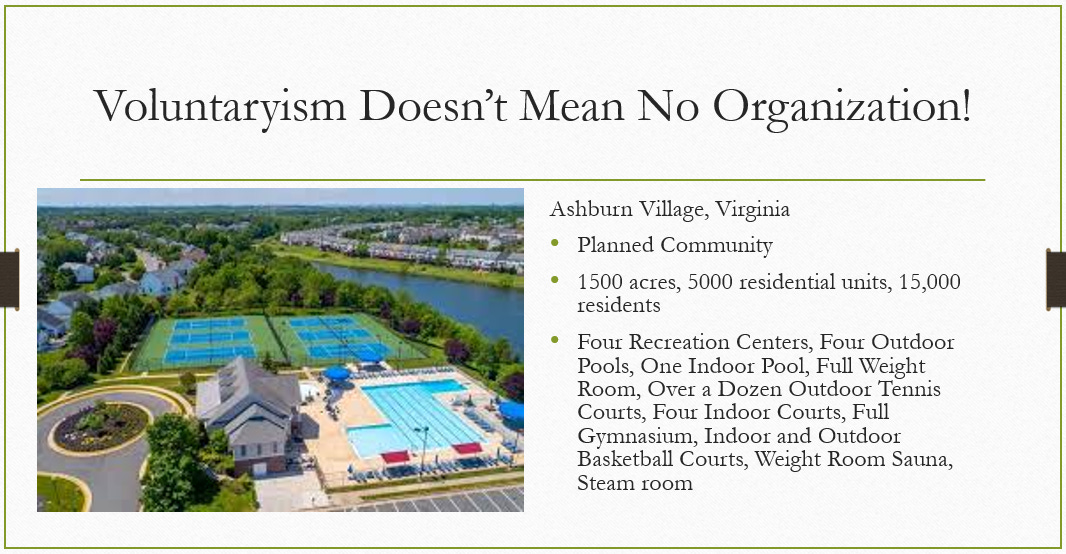
And being part of the HOA meant that we had a world-class sports complex with, with the, you know, basketball courts and racquetball courts and weight rooms and canoe rentals and you, you name it, that we had it. We had manicured lawns. We had six different community pools. We had, you know, I could go on and on about all of the amenities. And so, yeah, there’s things that I didn’t like the HOA, you know, get getting on our case about, but at the end of day, I made the rational decision like, okay, it’s really pretty nice here. I’m willing to seed some of those things, but what the HOA does is it gives you that governance without government. If you don’t like it, you can move.
Speaker 3
Yeah, that’s true. It’s getting harder to find places almost without HOAs too.
David Friedman
But it seems to me that the basic answer is an HOA is morally legitimate. That is to say, people do make mistakes, and it is legitimate for you to contract in ways that restrict your freedom, which is what you’re doing when you buy a house in an HOA, but it may be better not to if you’ve got ways of getting the objectives you want without restricting your freedom, and you’re saying in your case you now do.
Speaker 3
Right, so I kind of see it like it’s an ideal thing if the HOA is doing all those great things, but they end up using government to enforce. Exactly. I just want to add to that.
Derrick Broze
I’ve never dealt with an HOA, but I have friends who’ve worked on, been tyrannized by them. And that’s typically your perspective is what I’ve always heard. And I think it’s just sort of a side point that sometimes those who advocate for the private versus the government might forget that private things can be tyrannical too. You know, private organizations can still be just as tyrannical as government.
Organization. So it’s not inherently a fix that just cause something’s private, that it’s going to be better. I think that does in the marketplace though, then ideally you would, you could go like you did, you found somewhere better. Right. But simply just being private doesn’t guarantee that it won’t be tyrannical, but the argument like Howard said, but you contracted, you chose to get there and you can choose to leave with government. You don’t have that same option.
Etienne de la Boetie2
I think we’ve got time for one more question.
Larken Rose
I was going to throw in a very, to me, the silliest thing about HOAs is when the arrangement is, I agree to these rules and whatever crap you make up in the future. Like, don’t agree to that. You don’t know what stupid crap they’re gonna make up. So, and if you agree to that, it’s kind of your own problem.
I got a question.
Question from the Audience: Paul Bhola, CEO of Symbiotic Systems
I’m pretty sure I know the answer, but I’d love to hear the debate. You guys are like, you know, wonderful at answering questions. So like, you know, when it comes to like property rights, like you got journalists up here on the stage, you got musicians in the room, you know, how do you protect like the fruits of your labor? You know, something you work really hard on. I mean, you wouldn’t be really happy if somebody else plagiarized your work or AI or deep fakes were like, changing that or somebody was playing your music without getting like recognition. Intellectual property. Yeah, I’m talking about intellectual property.
Etienne de la Boetie2
I mean, how does that work? So so welcome, Paul Bhola. Paul Bhola is the CEO of Symbiotic Systems. He’s a patent holder. And I like I like I think I we’ve we’ve had this conversation many times. And the thing with intellectual property is to a certain degree, it’s not really like real property. It’s not like a physical thing that can be owned. There’s no way of proving that you had the idea before anybody else. There’s no way of enforcing, in many cases, except tyrannically.
And so the way in a voluntary society that you would protect your intellectual property is that you would keep it as close to the vest as humanly possible. You’re not going to let anybody know about what that idea is before you’re 100% ready to go to market. You’re going to only deal with trusted other businesses that have a track record of success and a name brand reputation of not violating intellectual property. You’re going to get yourself as far a head start as you can in the market before you release that idea out. And there’s other things like that, but those are just some of the ideas that I would suggest could be used to protect a really, really good idea without having somebody hold the gun of government on somebody else’s head.
Derrick Broze
I’ll just say I generally don’t agree with intellectual property laws in terms of government enforcement of that. I do think Things like blockchain and even the Creative Commons movement have showed that there are ways where we can still maybe claim a sense of ownership over the specific ways we formulate the ideas. Because like Howard said, there’s no way to prove you’re the first one ever to have that thought. But the way you arrange them, let’s say, Creative Commons, I think, has come up with some really cool ways for people to mark their property, if you will, and say, hey, you can reuse it under these circumstances, or Open Commons, whatever. So yeah, I think there’s definitely ways where can still have a sense of ownership or authorship over the things we create with that don’t have to involve government.
When you’re young, you worry about people stealing your ideas. When you’re old, you’re worried that they won’t. My general answer as a musician and author is I don’t believe in intellectual property. Only in that I don’t believe I have the right to go beat somebody up. But the actual answer I would give is if people would be consistent, that would actually remove the vast majority.
Like if you would feel personally justified punching somebody out for using your invention, at least it would be consistent for you to ask somebody in government to do it. Most people are perfectly eager to ask government to go beat somebody up and never in a million years would they do it themselves. So in this and a lot of other issues, if people would just be consistent and don’t ask them to do something you wouldn’t feel right doing yourself, that removes the vast majority of the conflict. Doesn’t remove all of it, but a lot of it just goes away. Like, okay, well, I wouldn’t punch him out, so I’m not gonna hire the thug next door or the thug with a badge to go punch him out for using my idea.
You mind if I just ask one little follow-up? Oh, yeah, yeah, yeah. Go ahead. Thanks so much. So I don’t believe in hiring people like beat people up, you know, I mean, it’s not really a good idea. Like, you know, and I myself, yeah, I’ll do it myself. Right. So, you know, I mean, so I mean, I’ve thought about it. I know we’ve talked about this a lot. So, like, one of the ways we looked at it was to, like, set up a way so we could hold accountability from a high level of, like, the product as it goes out so that, like, there was another way to enforce that without beating people up. So we say, OK, well, if people aren’t following it from a supply line side, we go, OK, hey, we’ll just pull the plug over here. And we have the patents too, but we don’t want to send somebody out to go beat them up, you know? Yeah, right, right, right.
So, you know, just kind of like a thought pattern. Thank you. Thank you. So I, so we, we’ve reached the end of it. Yeah. Yeah. Let’s give a hand of applause for all the questions and all of the speakers and all the panelists. Thank you. Thank you. Thank you.
Did You Like This Episode from Liberty on the Rocks?
Check out the Whole Conference on CiVL, the streaming platform for libertarians, voluntaryists, and intellectuals. Find it at Sedona.ArtOfLiberty.org OR https://watch.civl.com/programs/the-voluntaryism-conference-2024
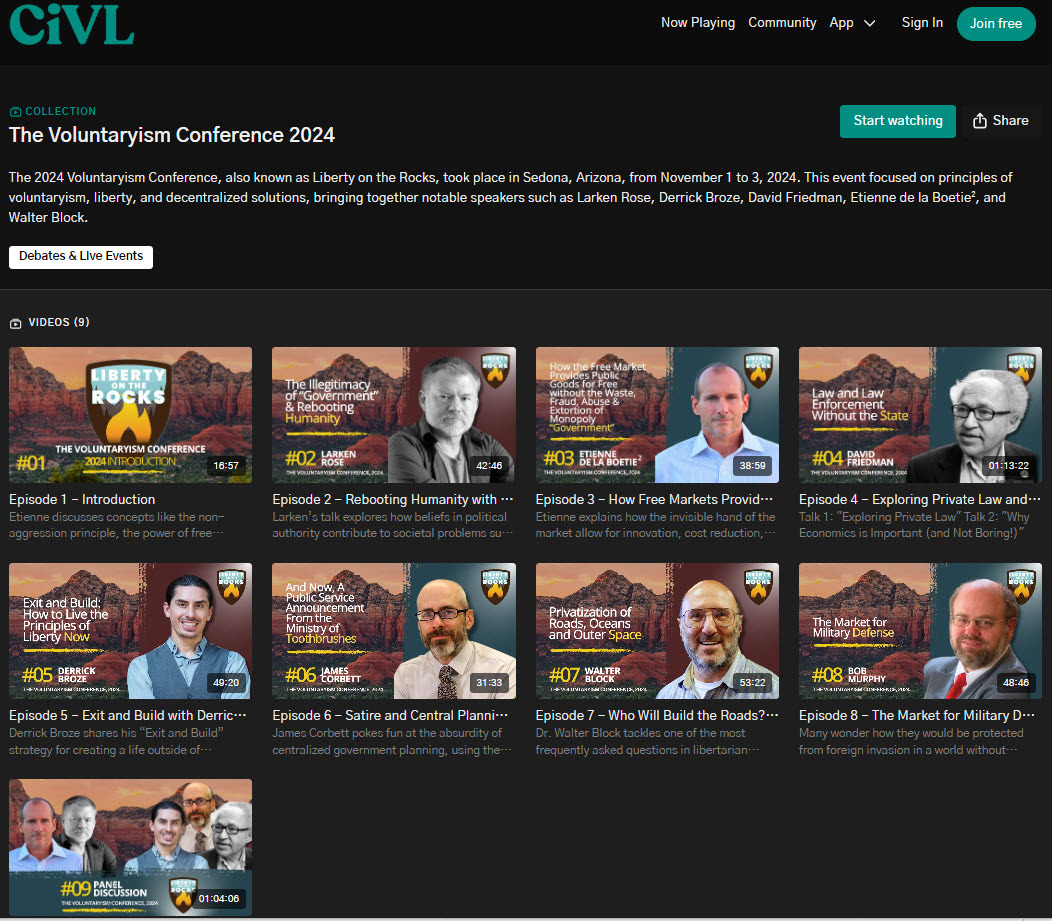
Beat the Rush – Our Substack Will Soon Be “Paid Only”

It was the best of times… It was the worst of times…
Best of Times: We just went over 10,000+ total subscribers across all four of our Substacks: Important News from the Art of Liberty Foundation (5954 6074 subs on Substack, 123 127 paid, 6200+ on house e-mail, occasional), Five Meme Friday (1539 1567 subs on Substack, 7 10 paid, 5500+ on house e-mail, weekly), The Daily News from AoLF (2442 2471 subs, 63 67 paid, 3-7+ emails per day), and the Daily News Digest (515 544 subs, 23 paid, single digest e-mail of The Daily News per day)
The Worst of Times: While we have over 10,000+ total subscribers, only 216 are paid subscribers… We aren’t covering the costs and my finance thinks I am CRAZY to be spending so much of my time on the Daily News and Five Meme Friday …
So… I am going to put it to the market… We are going to begin transitioning everything to Paid Only over the next couple of weeks to see if we can get to “1000 raving paying fans” Here is how it is going to go down…
- If you bought an in-person or virtual ticket to Liberty on the Rocks – Sedona, Supported our IndieGoGo campaign for Voluntaryism – How the Only “ISM” Fair for Everyone Leads to Harmony, Prosperity and Good Karma for All, OR pre-ordered a copy of Voluntaryism to support the project, THANK YOU! You will receive a free one-year subscription to all four Substacks! Stay tuned!
- Subscribe to one of our Substacks as an annual recurring member and you will get access to all of our other Substacks for free… and get a paperback copy of “Government” – The Biggest Scam in History… Exposed!… See point 3 below…
- We are still, as far as I know, the only Substack that gives REAL books and perks as a premium for “Going Paid” – This will continue… Go Paid at the $5 a month level and get a free copy of “Government” – The Biggest Scam in History… Exposed! in ePub & PDF. Go paid at the $50 a year level and get either a paperback copy of “Government” OR a Liberator Flash Drive with an option to get BOTH for an additional $15. Become (or Upgrade to!) a $250 a year Founding Member and get a signed, high-resolution hard cover edition of “Government,” a Liberator flash drive, and a copy of Larken Rose’s book The Most Dangerous Superstition delivered anywhere in the world.







